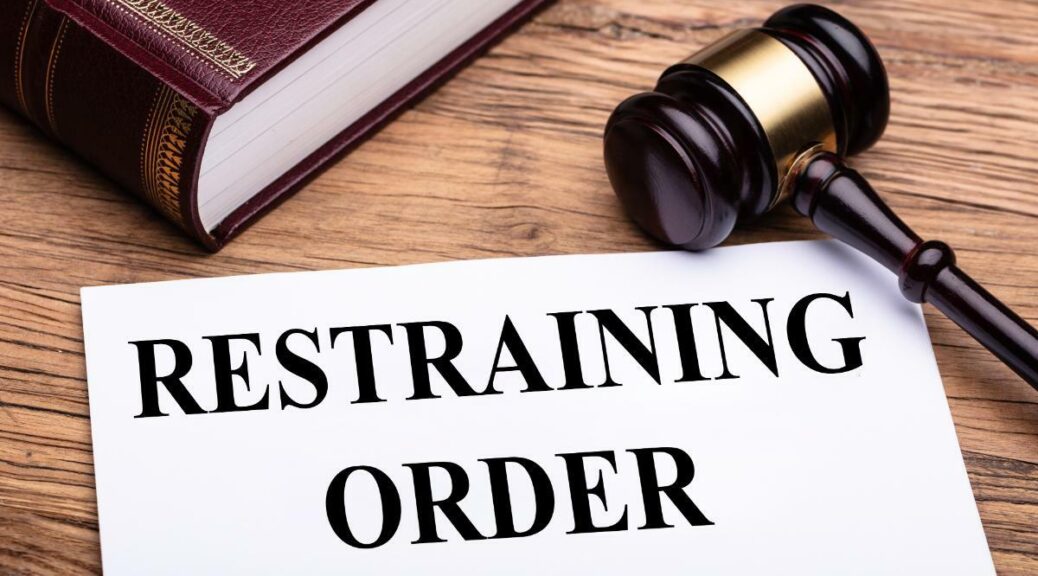Family law emergencies don’t always wait for regularly scheduled court dates. When urgent situations threaten your safety, your children’s well-being, or your financial security, California law provides a mechanism for immediate court intervention: the ex parte hearing. The Law Offices of Judy L. Burger, led by Certified California Family Law Specialist Judy Burger, has extensive experience handling ex parte matters and can provide swift, strategic representation for urgent situations.
Understanding Ex Parte Hearings in California
An ex parte hearing is an emergency court proceeding requested on shortened notice—sometimes with little or no advance notice to the other party. The term “ex parte” means “from one party,” indicating that these hearings can proceed even if the other side hasn’t had the typical amount of time to prepare a response.
Unlike regular motions that require 16 court days’ notice, ex parte applications can be heard within days or even hours of filing. California courts reserve ex parte hearings for genuine emergencies where waiting for a regular hearing would cause immediate harm or irreparable injury. Judges scrutinize ex parte requests carefully because they deviate from the normal process that gives both parties adequate time to prepare.
Ex parte hearings are not the appropriate venue for routine disputes or matters that have existed for weeks or months without creating immediate danger. Courts expect parties to use regular motion procedures unless circumstances truly qualify as emergencies requiring immediate judicial intervention.
When Ex Parte Relief Is Appropriate
California family courts grant ex parte hearings in specific urgent circumstances, including:
- Immediate Safety Concerns: When domestic violence, child abuse, threats of harm, or kidnapping risks exist, ex parte hearings allow victims to obtain immediate protective orders, modify custody arrangements, or secure other safety measures without delay. These situations represent the clearest justification for emergency relief.
- Child Custody Emergencies: Beyond safety threats, ex parte custody relief may be appropriate when a parent violates existing custody orders by refusing to return a child, when a parent plans to leave the jurisdiction with the child without permission, or when a child faces immediate risk of harm in their current placement.
- Financial Emergencies: Ex parte financial relief addresses situations like a spouse draining bank accounts, hiding or destroying marital assets, failing to pay court-ordered support, causing imminent eviction or utility shutoff, or refusing to maintain required insurance coverage. The key is demonstrating immediate, irreparable financial harm.
- Property Protection: When a spouse threatens to sell, transfer, or destroy significant marital property, ex parte orders can prevent these actions until a regular hearing addresses property division properly.
Information and Documentation You Need
Successfully obtaining ex parte relief requires thorough preparation and compelling evidence. Courts won’t grant emergency orders based on general allegations or unsubstantiated claims. You should gather:
Detailed Declaration Under Penalty of Perjury
Your declaration must clearly explain what emergency exists, why you couldn’t address it through regular motion procedures, when you learned of the emergency, what immediate harm will occur without court intervention, and what specific relief you’re requesting. Include specific dates, times, locations, and factual details that demonstrate the urgency.
Supporting Evidence
Gather all available evidence supporting your emergency claim: police reports, medical records, photographs of injuries or property damage, threatening text messages or emails, bank statements showing asset dissipation, witness declarations, and documentation of violated court orders. The more concrete evidence you provide, the stronger your case.
Notice Requirements Documentation
California law requires you to notify the other party of your ex parte request unless doing so would create danger or defeat the emergency relief’s purpose. You must document your efforts to provide notice, including when and how you notified the other party or explain why notice wasn’t possible. Failure to properly handle notice requirements can result in the denial of your request.
Proposed Orders
Prepare clear, specific proposed orders stating exactly what you want the court to order. Vague requests reduce your chances of success. Your proposed orders should be narrowly tailored to address the specific emergency.
Financial Information
For financial emergencies or requests involving support or attorney fees, provide current income and expense declarations, account statements, and documentation of the financial crisis.
Existing Court Orders
Bring copies of all relevant existing court orders, especially if your ex parte request involves alleged violations of those orders.
How the Ex Parte Process Works in California
The ex parte process moves quickly but requires strict compliance with procedural rules. Generally, you must notify the court and the other party by 10:00 a.m. on the court day before your requested hearing date. Some courts have specific ex parte departments or calendars, while others hear ex parte matters at designated times.
At the hearing, you’ll have limited time to present your case—often just minutes. The judge will review your written materials, hear a brief oral argument, and may ask questions. If the other party appears, they’ll have an opportunity to respond. The judge will then decide whether to grant temporary emergency orders.
Ex parte orders are temporary. If the court grants your request, it will typically schedule a follow-up hearing—called an Order to Show Cause hearing—within a few weeks, where both parties can fully argue the issues. The ex parte orders remain in effect until that hearing unless modified.
How Certified Family Law Specialist Judy Burger Can Help
Ex parte proceedings are high-stakes, fast-paced legal matters requiring sophisticated knowledge of family law and courtroom experience. Judy L. Burger’s certification as a Family Law Specialist by the State Bar of California Board of Legal Specialization demonstrates her exceptional expertise in handling complex, urgent family law matters.
This certification, earned by fewer than 10% of California family law attorneys, requires extensive experience, passing a rigorous examination, ongoing education, and peer recognition. When facing a family law emergency, working with a Certified Specialist provides significant advantages.
Judy Burger and her team understand what constitutes a true emergency warranting ex parte relief versus situations better addressed through regular procedures. She knows how to craft compelling declarations that clearly articulate the emergency, marshal persuasive evidence, comply with technical notice and procedural requirements, and present effective oral arguments in the limited time available.
The Law Offices of Judy L. Burger has successfully obtained ex parte orders protecting clients from domestic violence, preventing child abduction, stopping asset dissipation, and addressing other urgent matters throughout California. Judy’s experience includes representing clients at ex parte hearings and defending against improper ex parte requests.
Beyond obtaining immediate relief, Judy provides strategic guidance for the follow-up proceedings. Ex parte orders are just the first step; you need representation for the subsequent hearings where the court will determine whether to extend, modify, or terminate the emergency orders.
Frequently Asked Questions About Ex Parte Hearings
What happens if my ex parte request is denied?
If the court denies your ex parte request, you can still file a regular motion or Request for Order addressing the same issues through normal procedures. The denial doesn’t prevent you from seeking relief; it simply means the court didn’t find sufficient emergency circumstances to justify shortened notice. Your attorney can help you understand why the request was denied and develop an alternative strategy.
Can I request an ex parte hearing without an attorney?
While you can represent yourself in ex parte proceedings, doing so is risky. Ex parte hearings involve complex procedures, strict deadlines, and high stakes. Mistakes in paperwork, notice, or presentation can result in the denial of your request, potentially leaving you without protection in an emergency. The compressed timeline makes it especially difficult for self-represented parties to prepare effective requests.
How much does an ex parte hearing cost?
Costs vary based on case complexity and attorney fees, but ex parte matters typically require fewer attorney hours than regular motions due to the shortened timeline. Some ex parte requests include asking the court to order the other party to pay your attorney fees, especially in financial emergency situations.
What if the other party violates the ex parte order?
Violating court orders can result in contempt of court findings, fines, jail time, and other sanctions. If the other party violates an ex parte order, document the violations thoroughly and immediately inform your attorney. You may need to file an Order to Show Cause regarding contempt or request additional enforcement measures.
Can an ex parte order be overturned?
Yes. At the follow-up Order to Show Cause hearing, the responding party can present their full case, and the court may modify or terminate the ex parte orders based on complete information from both sides. This is why ex parte orders are temporary—they’re based on limited information presented in an emergency context. The subsequent hearing provides full due process for both parties.
Get Immediate Help for Your Family Law Emergency
When you’re facing a genuine family law emergency requiring immediate court intervention, time is critical. The Law Offices of Judy L. Burger provides experienced, strategic representation for ex parte matters throughout California.
Contact Certified California Family Law Specialist Judy Burger immediately if you need emergency court relief. Our team understands the urgency of these situations and can quickly assess whether ex parte relief is appropriate, prepare compelling documentation, and provide effective representation at your emergency hearing.
Call us now or visit our website—when emergencies arise, every moment counts, and expert legal guidance can make all the difference in protecting you and your family.











